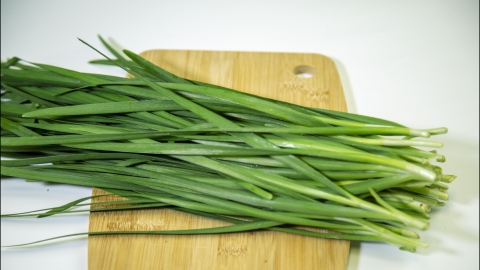What foods are incompatible with Chinese chives?
Generally, leeks are considered incompatible with persimmons, alcohol, beef, honey, milk, and other substances. The specific analysis is as follows:

1. Persimmons
Eating leeks together with persimmons may cause indigestion. Tannic acid in persimmons may combine with certain components in leeks to form substances that are difficult to digest, increasing the burden on the gastrointestinal tract and potentially causing symptoms such as bloating and abdominal pain.
2. Alcohol
Consuming leeks with alcohol may lead to elevated blood pressure, as certain components in leeks interacting with alcohol could have adverse effects on the cardiovascular system. This combination should be especially avoided by individuals with hypertension.
3. Beef
Both leeks and beef are considered warming foods. Consuming excessive amounts together may lead to excessive internal heat, causing symptoms of heatiness such as dry mouth, thirst, and constipation.
4. Honey
Eating leeks together with honey may cause diarrhea and indigestion. Vitamin C in leeks might react with minerals in honey, potentially destroying nutrients.
5. Milk
Leeks contain oxalic acid, while milk is rich in calcium. When consumed together, oxalic acid may combine with calcium to form calcium oxalate, a substance not easily absorbed by the human body, thus affecting calcium absorption and utilization.
Although the above foods are considered incompatible with leeks, this does not mean they absolutely cannot be consumed together. In daily diets, these foods can be appropriately combined according to individual constitution and health conditions.






